A good companion to the National WASP WWII Museum in Sweetwater is the Silent Wings Museum in Lubbock, Texas. This fantastic museum is dedicated to WWII glider pilots towed to crash-land near the front lines. The glider program quickly delivered troops and gear right to where they were needed most, in the days before helicopters were in wide use.
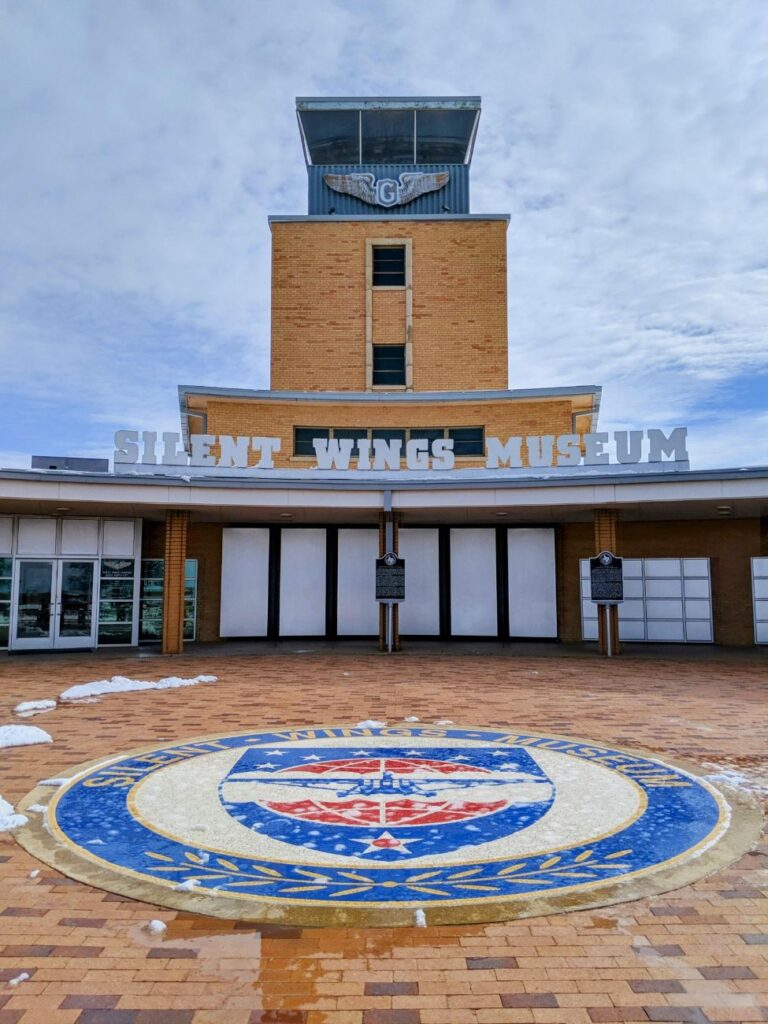
Silent Wings Museum
The Silent Wings Museum isn’t super intuitive about how to tour it. I recommend starting with the Silent Wings Theater, down the first hall on the left. (Bathrooms are on this hall too.) In it, you’ll hear from the men who flew the gliders and the history of the program. There’s a button on the wall to push if the movie is not already in progress.
Make sure to see the hallway displays, then there are a few other rooms to walk through. One has a timeline of military air power and of the glider program, specifically. Plus, there’s a display on the efforts to locate the old parts and assemble the glider you see in the museum.
A large, round room has artifacts on display from the WWII era, mannequins in the appropriate uniforms. A large life-size diorama of a glider that shows how they were used. You see the pilots opening the nose and some of the things they used to fly in the gliders, like jeeps loaded with soldiers or equipment, and big guns.
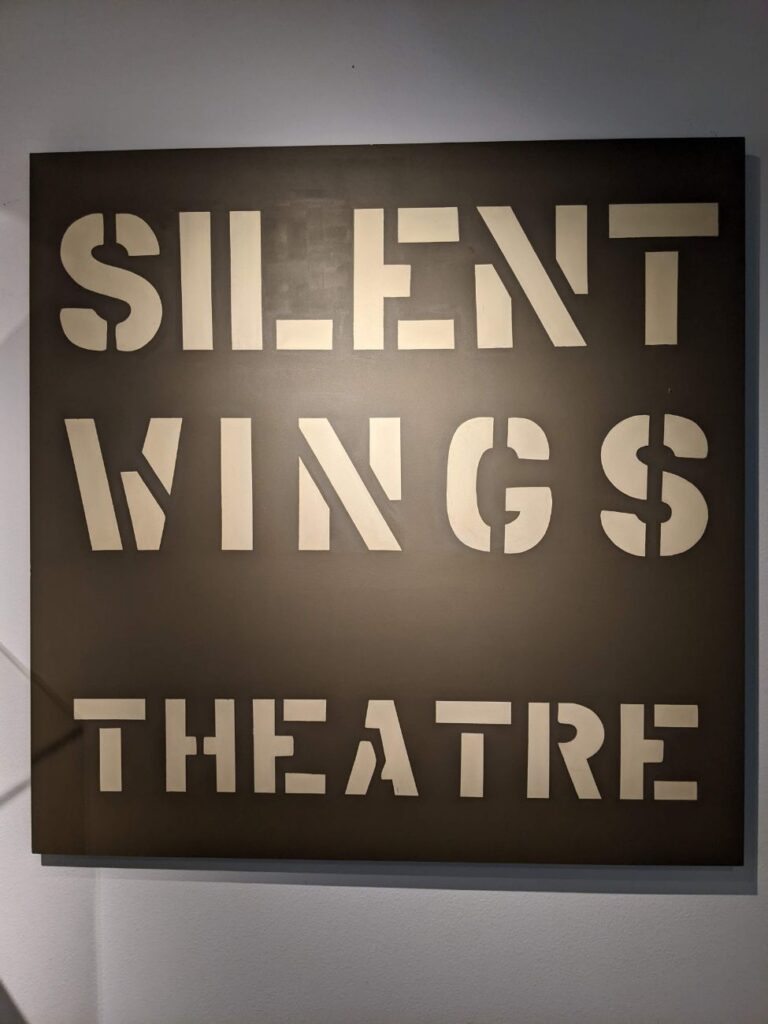
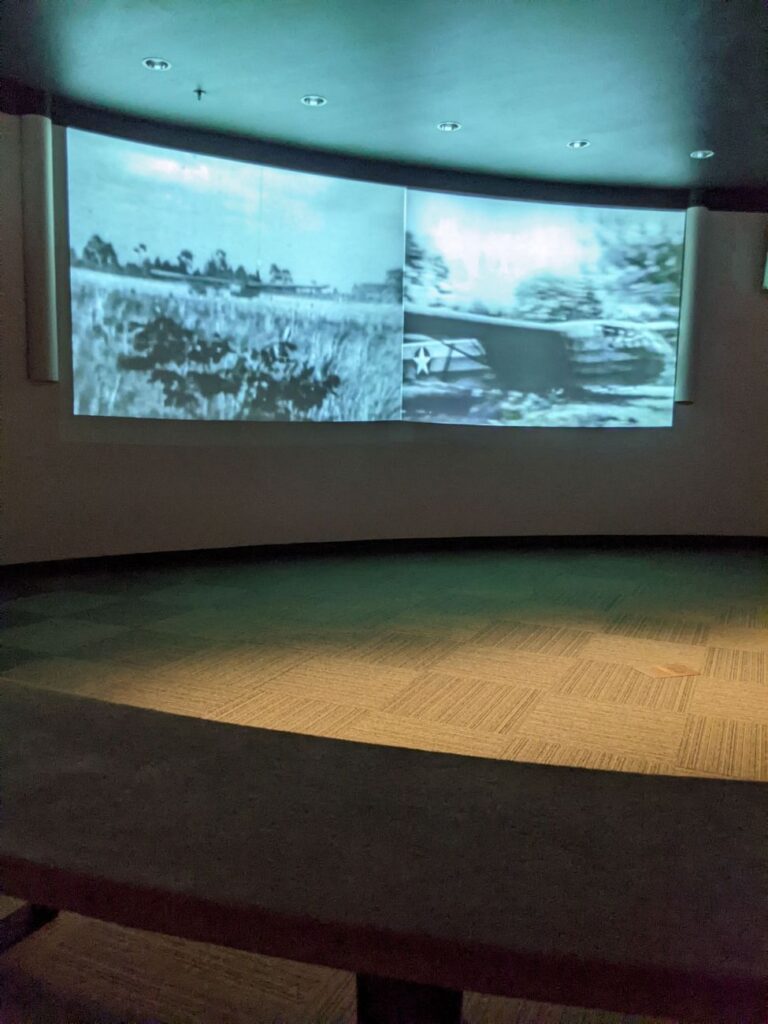
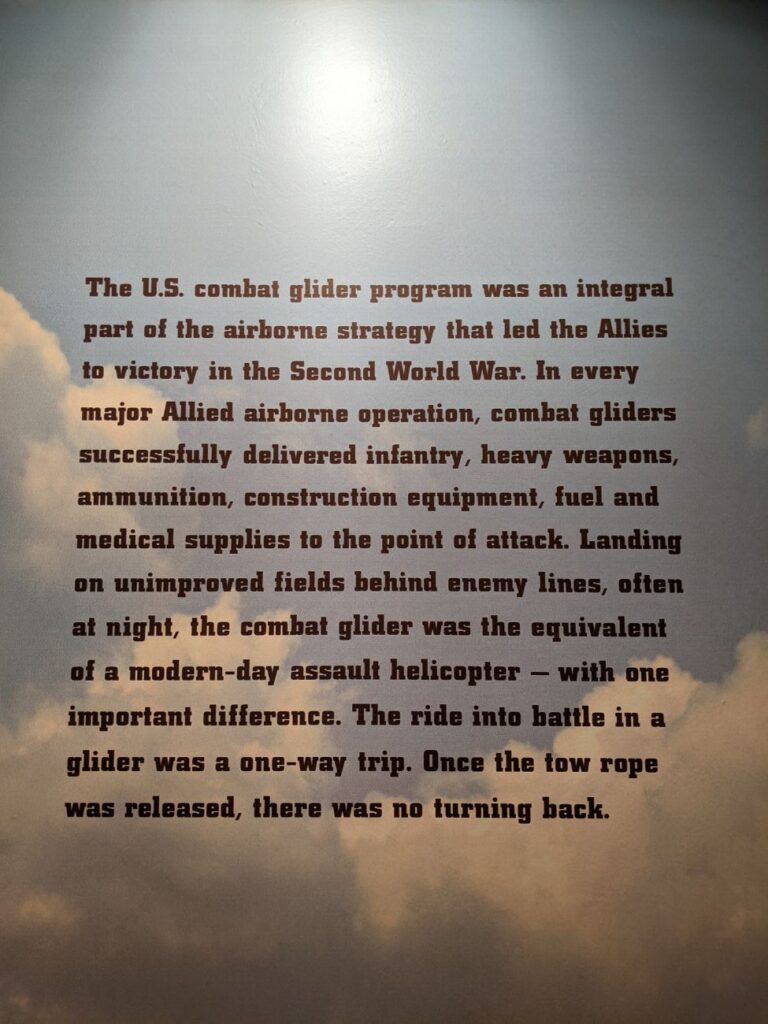
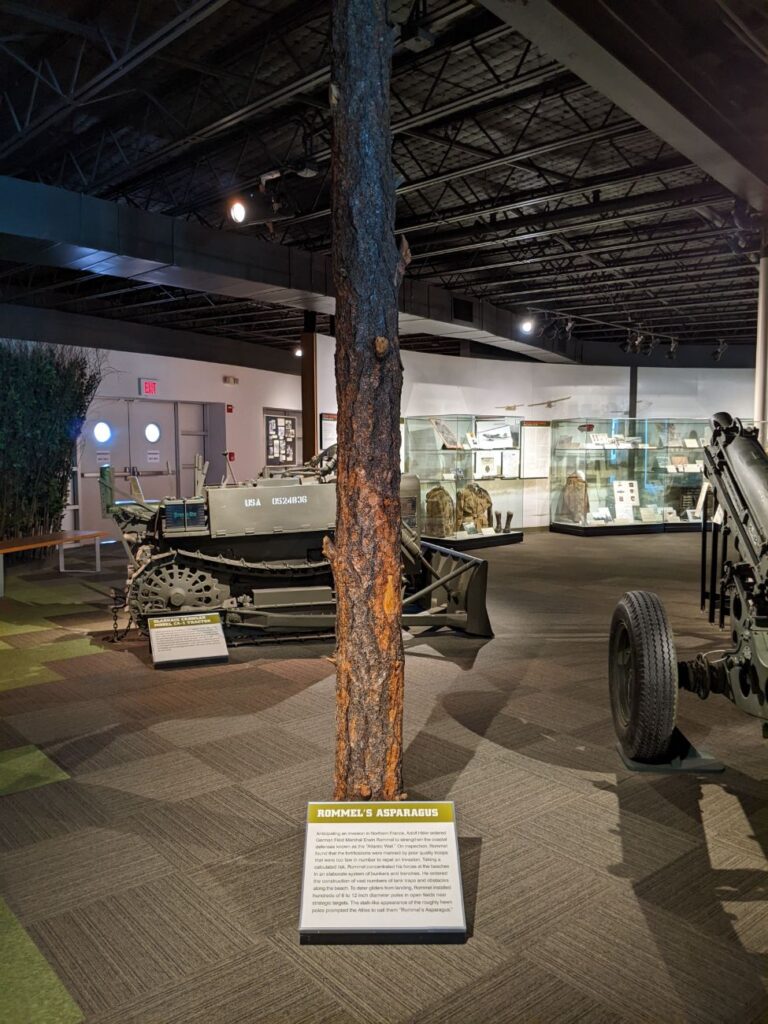
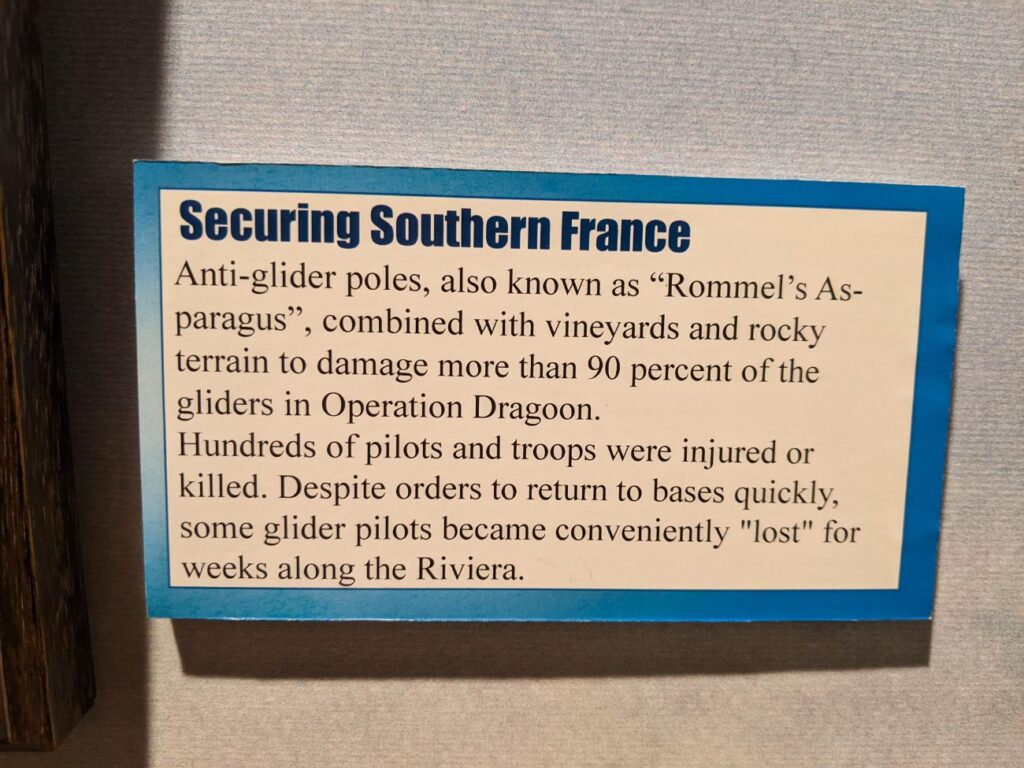
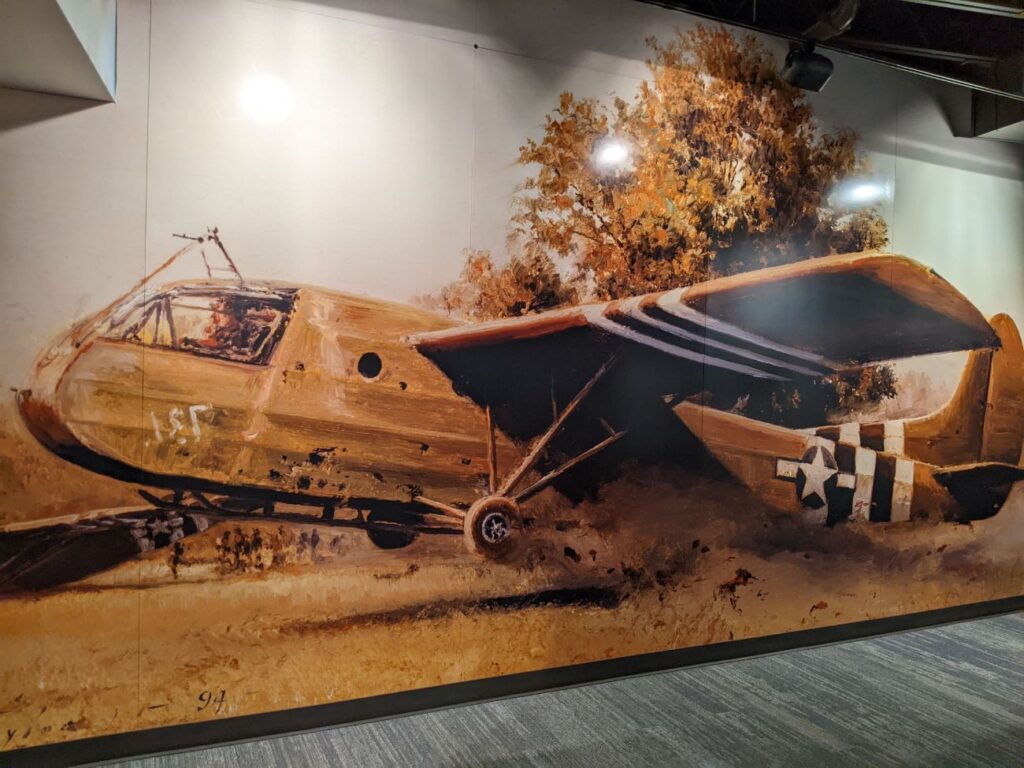
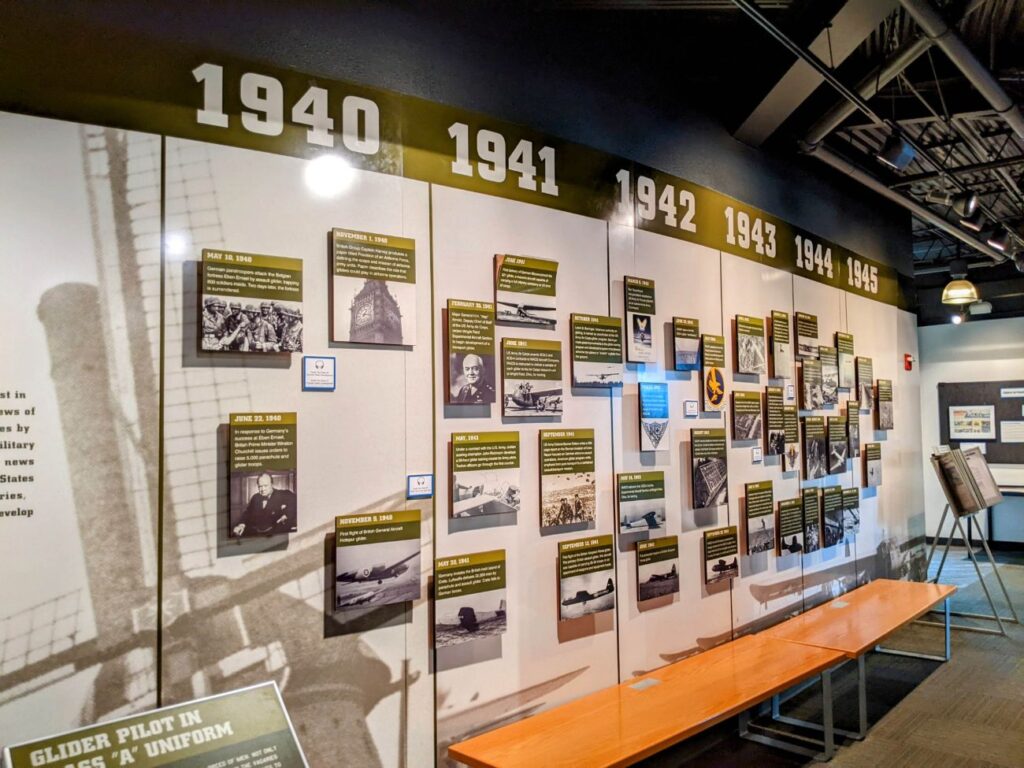
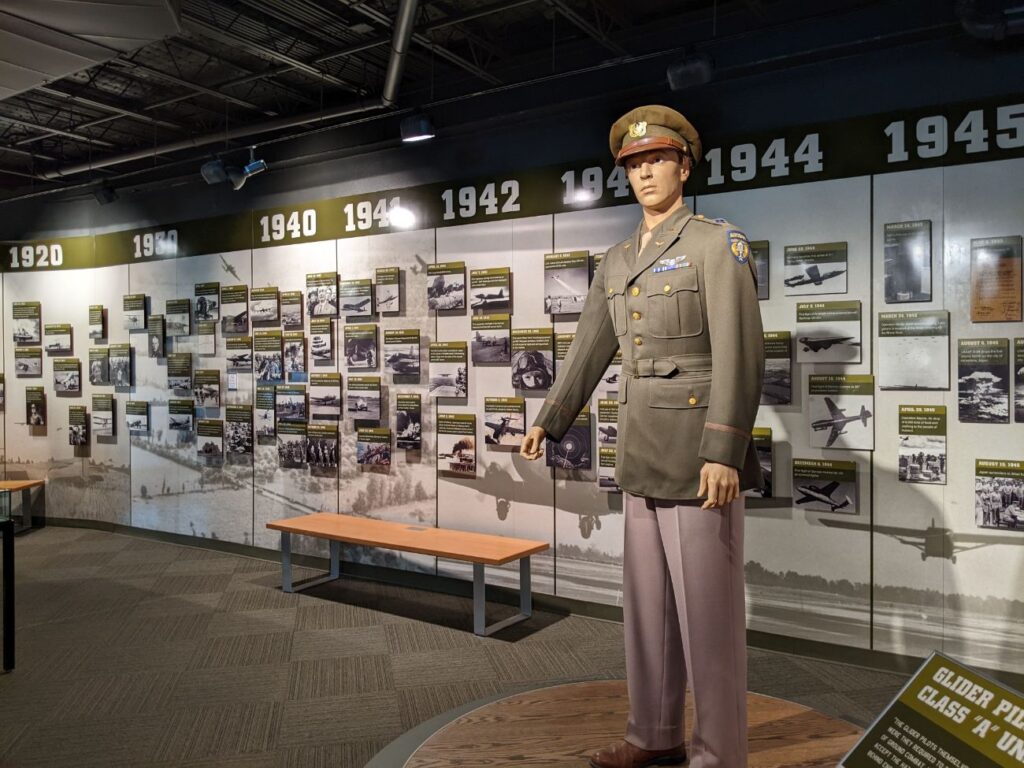
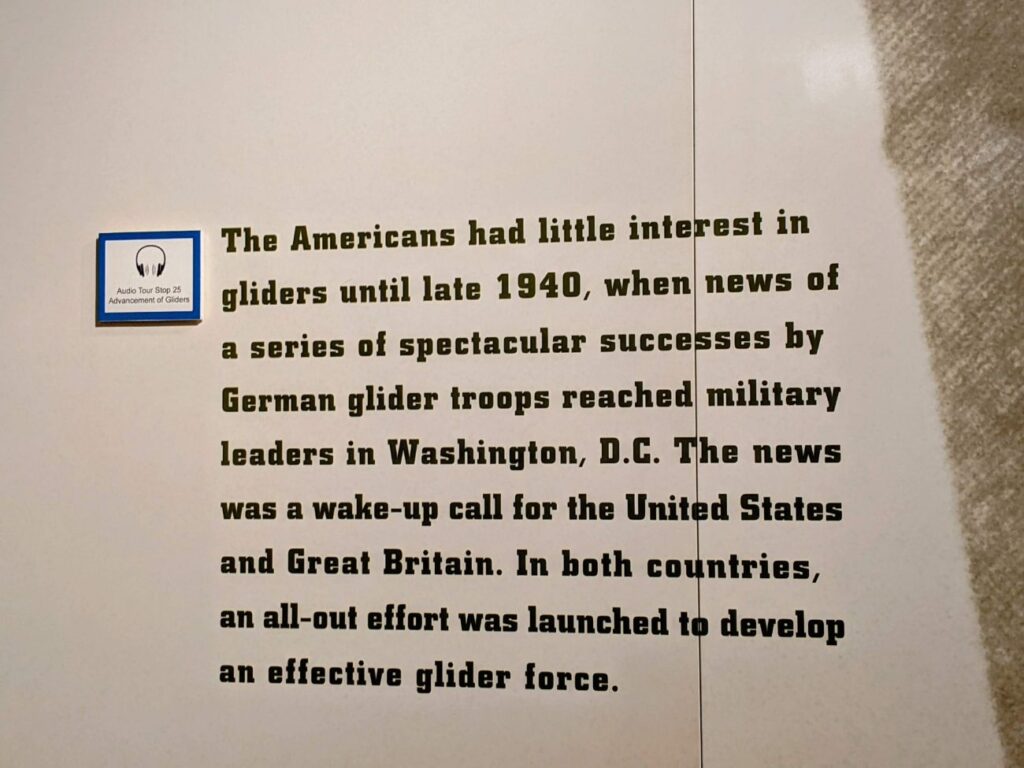
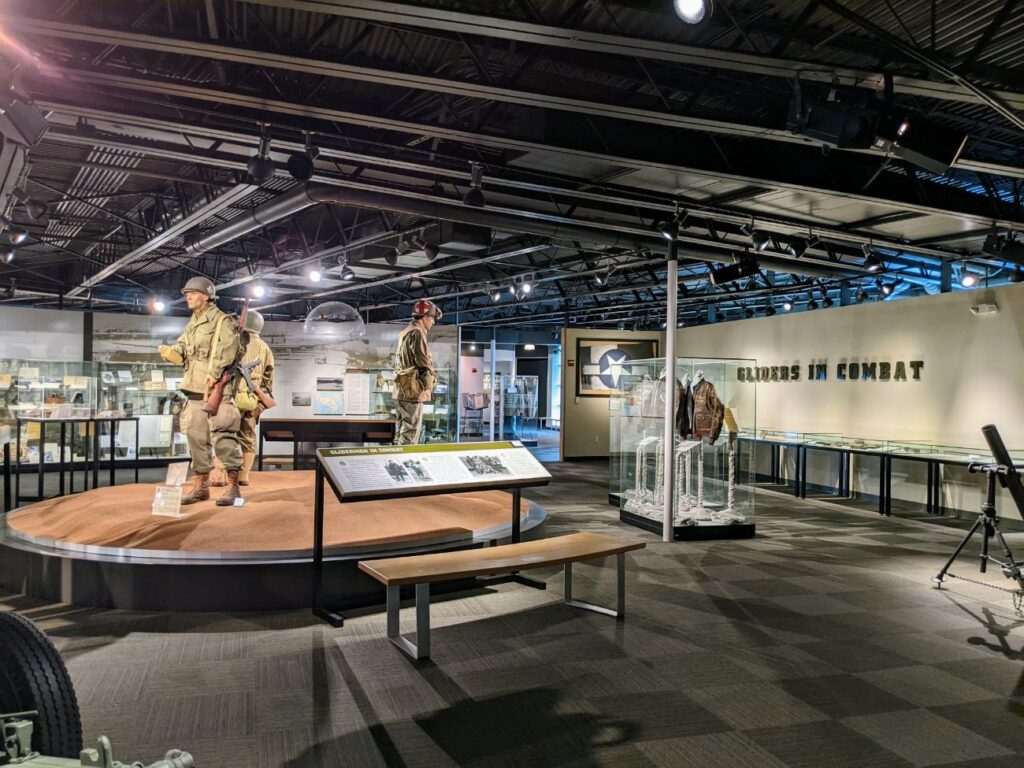
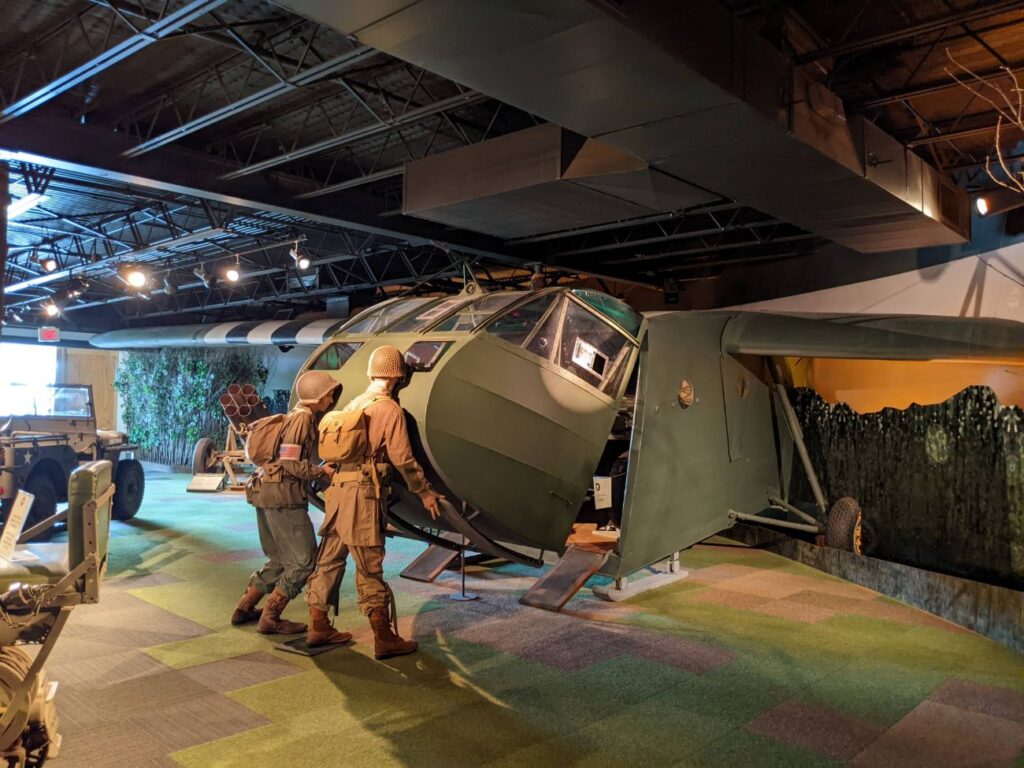
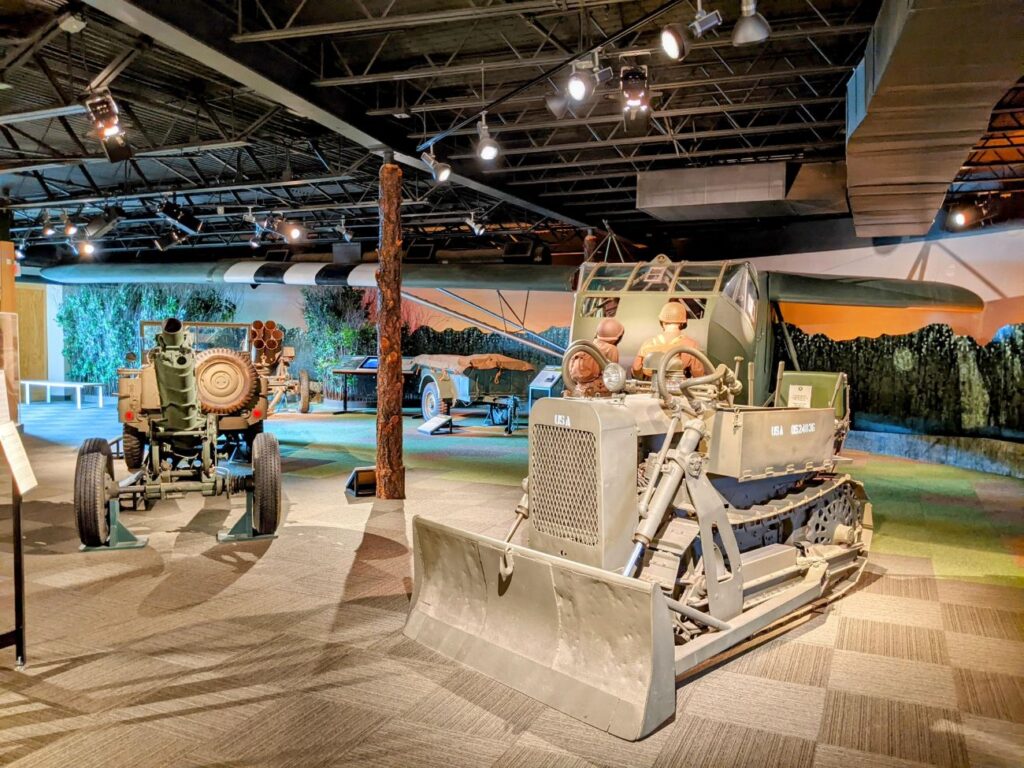
Restored CG-A4 Glider
A hangar-like room in the back holds the full-size restored glider, plus a couple of other models. Along the inner wall are recreated barracks and classrooms. Don’t miss the video in this room on retrieving intact gliders. Most glider trips were one-way. The pilots tried to land them with as little damage as possible. If the glider was still in one piece, there was a whole protocol on how to get snatched back up, basically with a tow rope propped up on poles.
Otherwise, the pilot has to find his way back to base. Either with the front-line soldiers he landed near, or his own ingenuity. There’s a bike in the museum that one pilot used to pedal his way back. He even chopped it up to pack it when he went home!
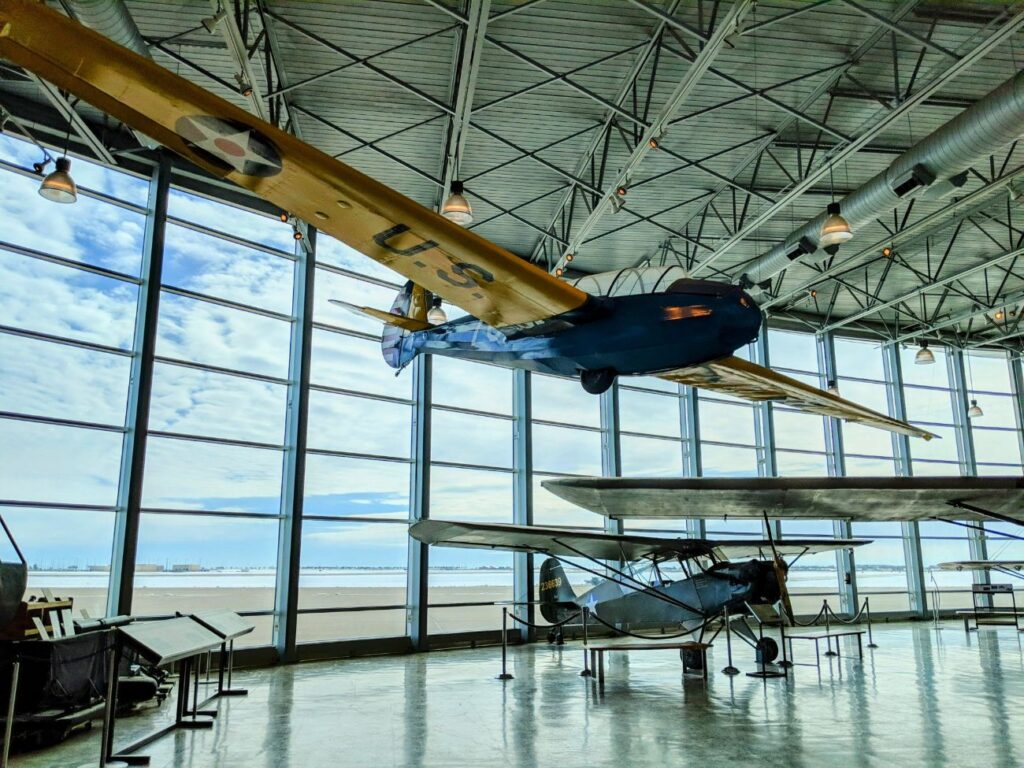
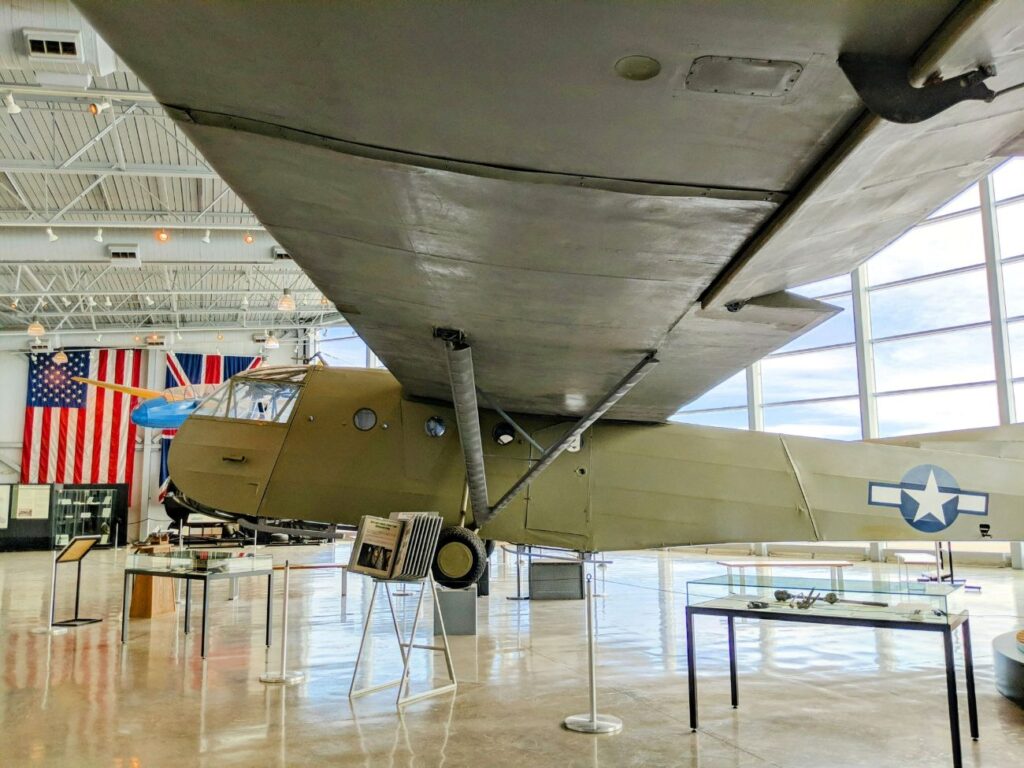
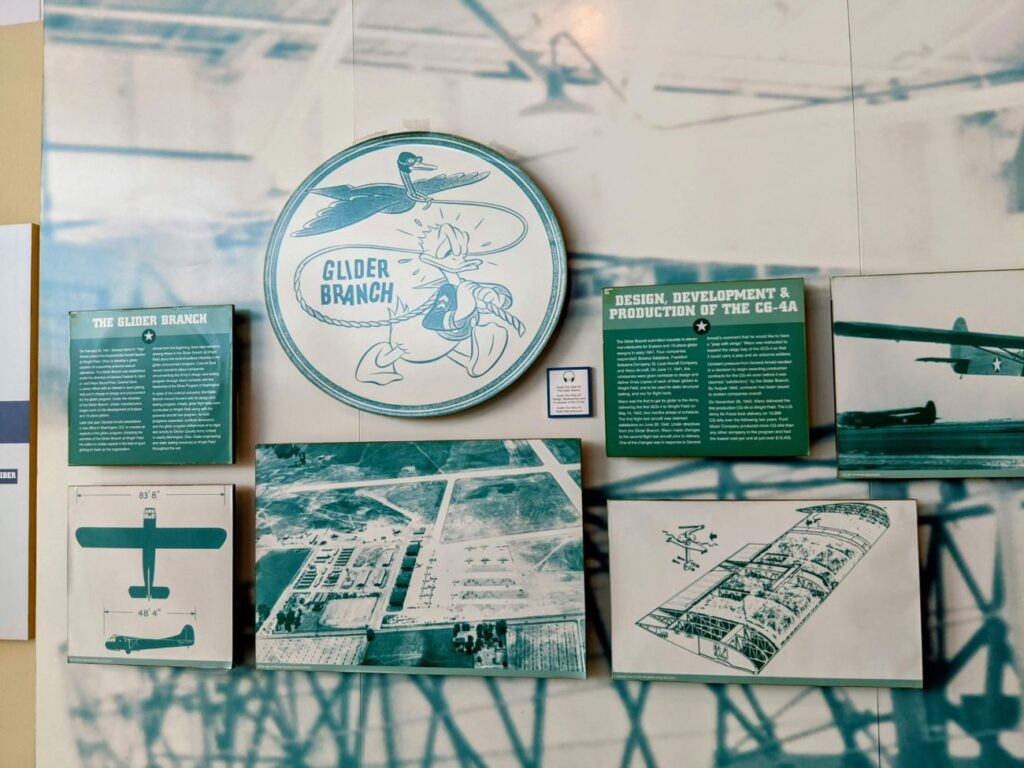
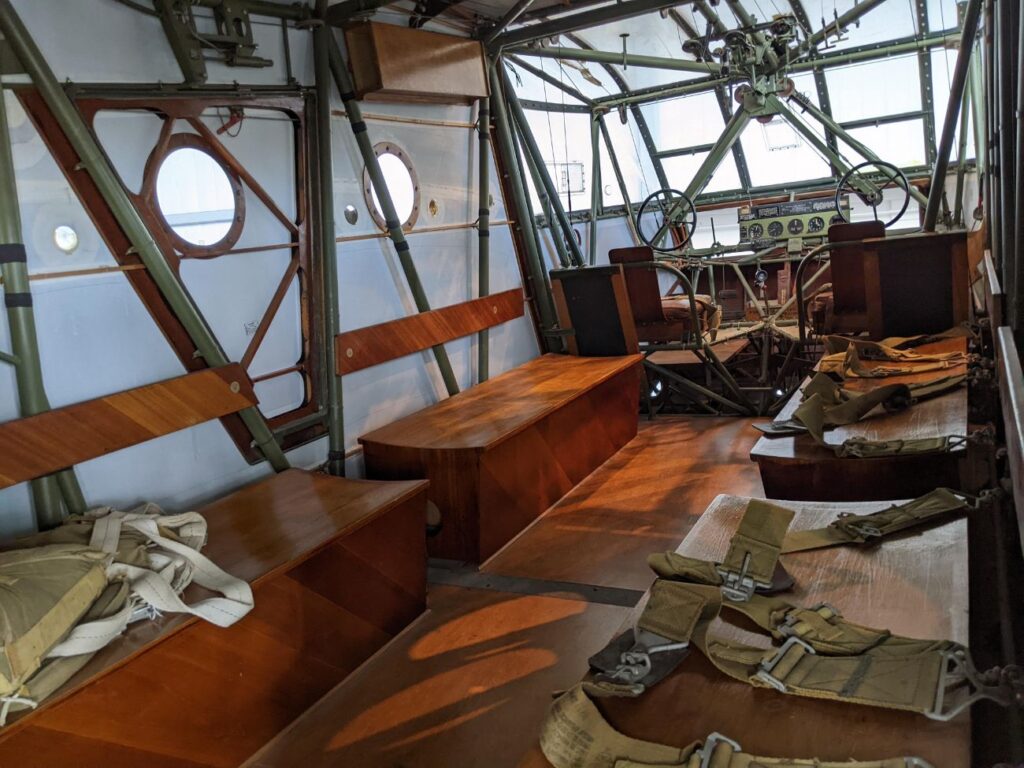
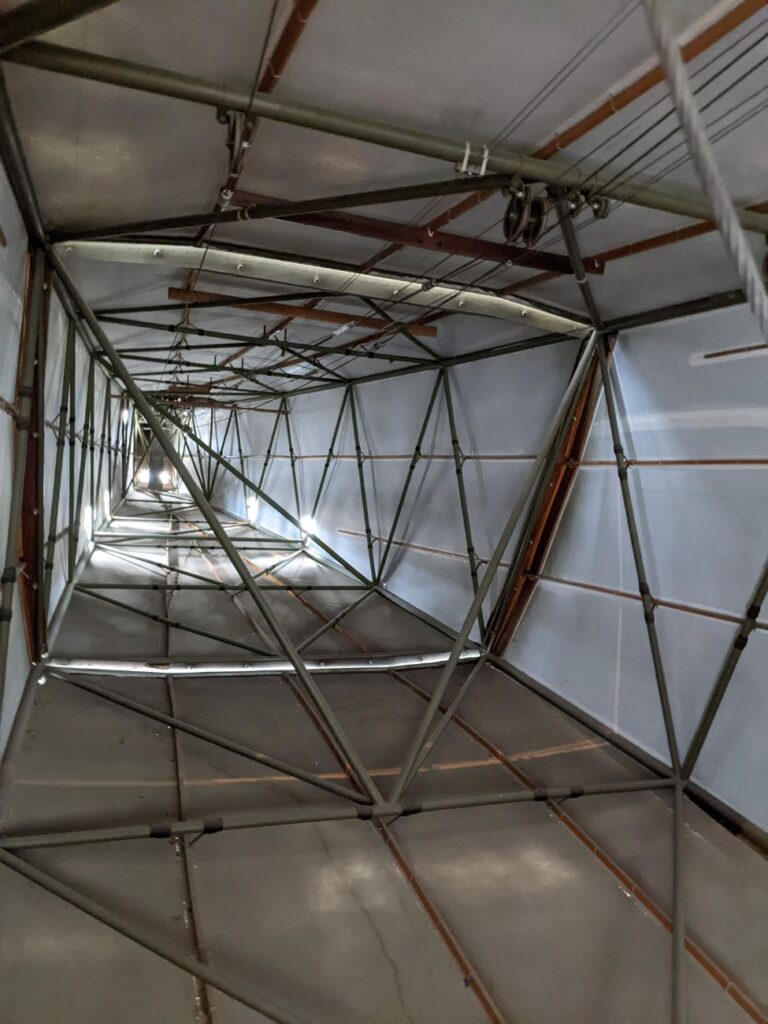
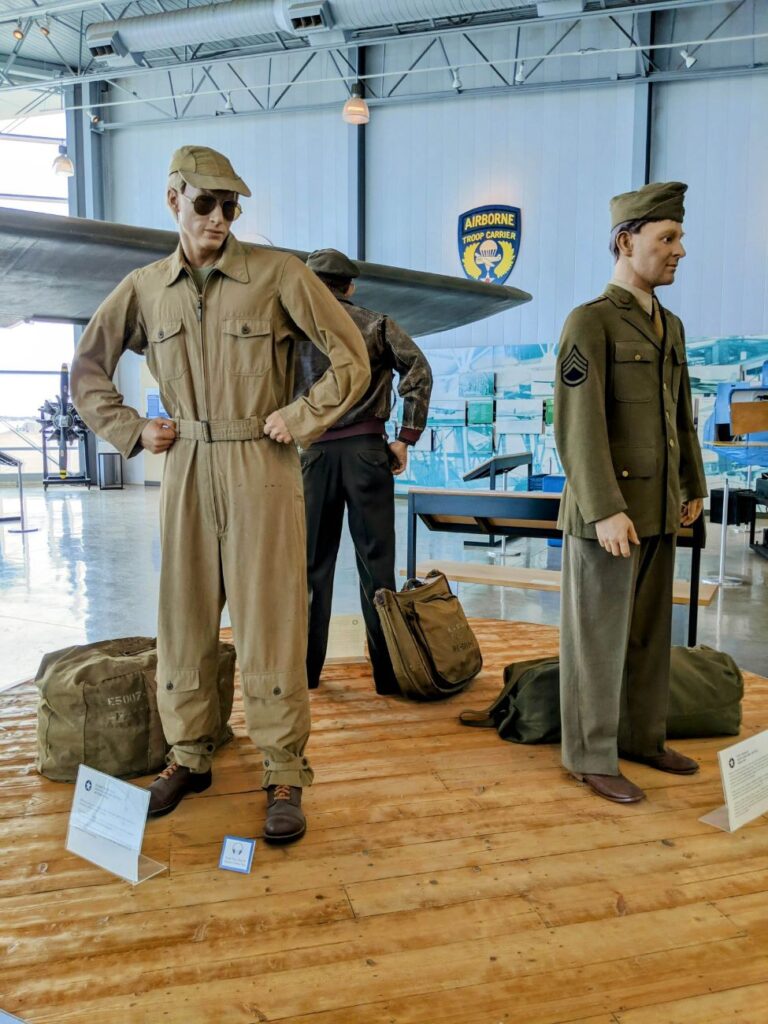
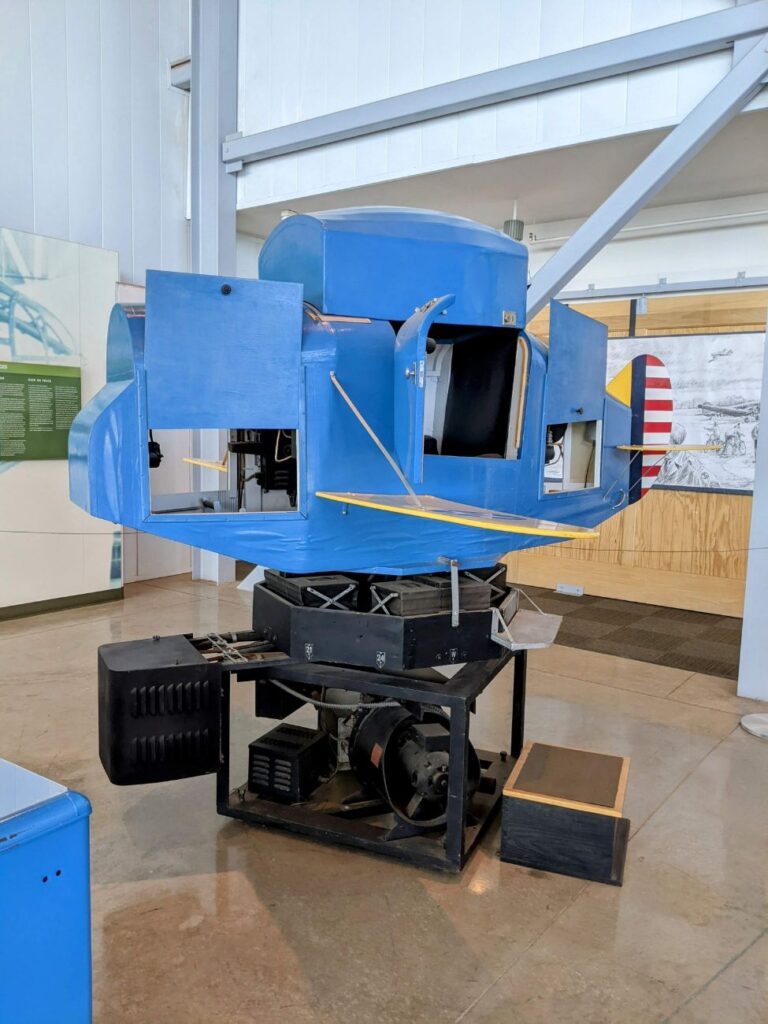
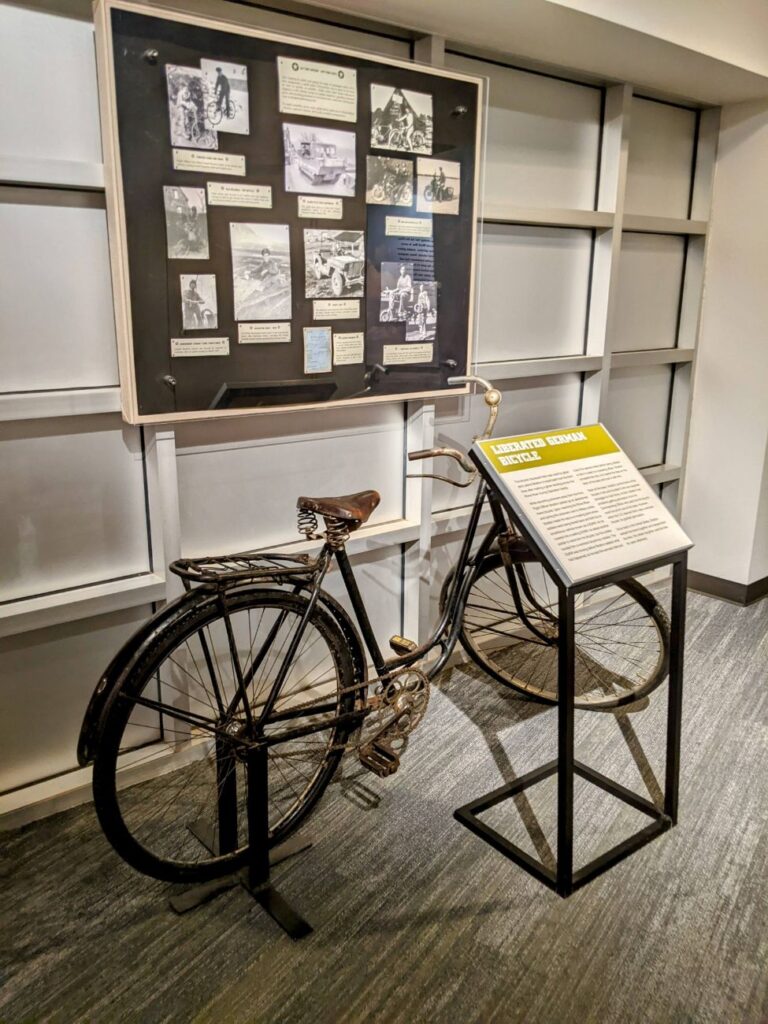
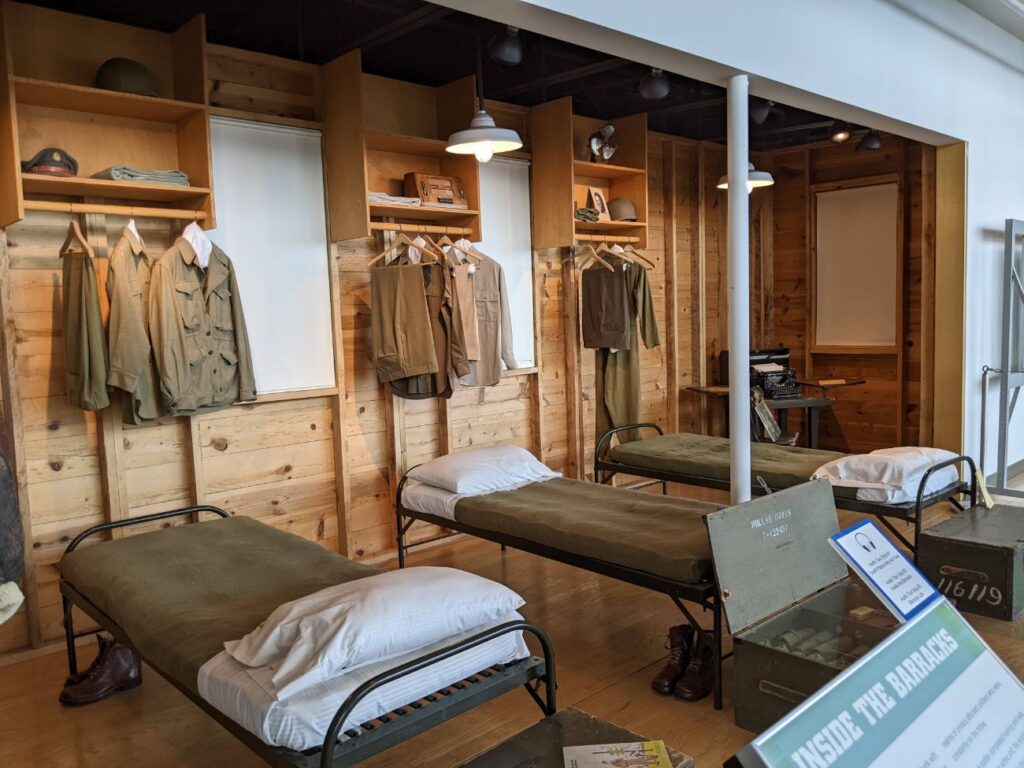
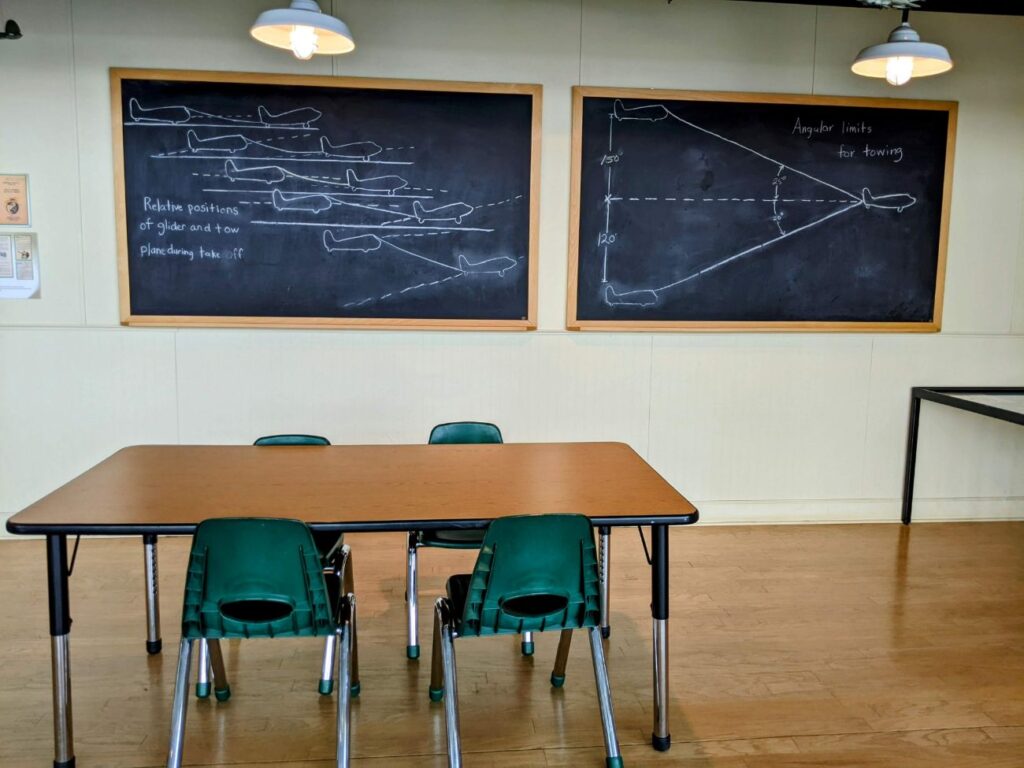
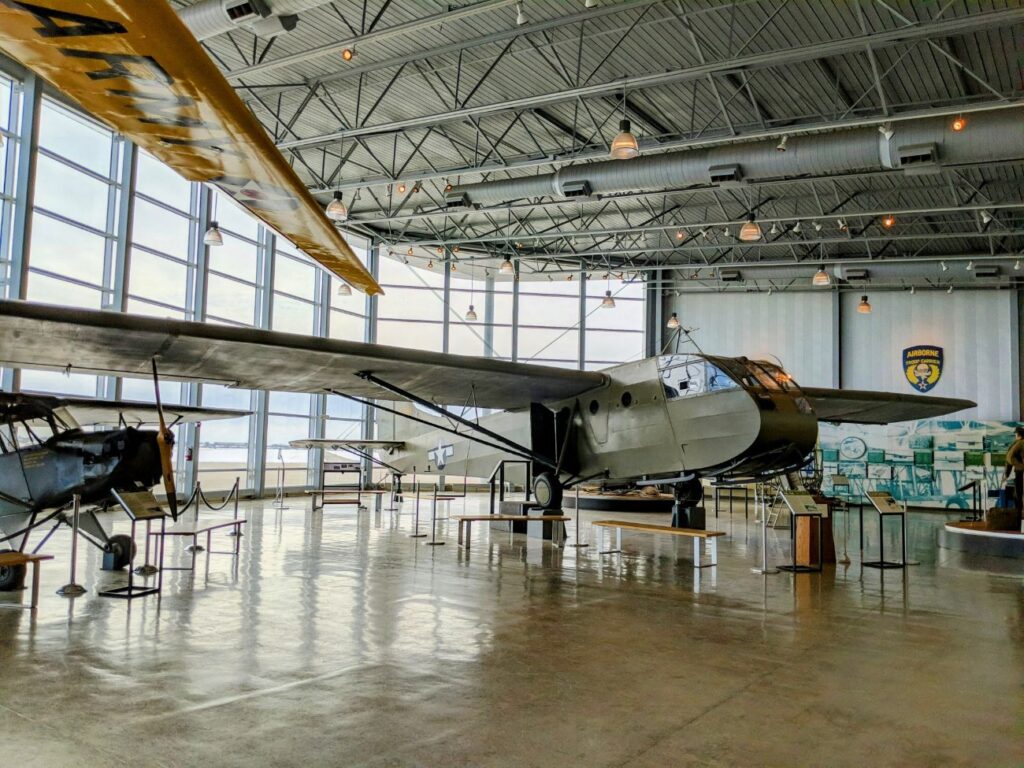
The Pea Patch Show
The idea of piloting an engine-less aircraft near, or sometimes behind, enemy lines certainly takes a lot of guts. As the National Museum of the US Air Force puts it, “Glider pilots were unique in that they had no parachutes, no motors, and no second chances.”
And at first, it didn’t go very well. An Italian campaign in Sicily was a mess, and the program was almost shut down. In response, the Army Air Force established a base in North Carolina for training and testing.
When the General came to inspect, a Major who had been an acrobatic show pilot before the war put on a well-ordered program of everything the gliders were capable of. He ended the day by taking the General and his senior staff members out to a field at night and shut off all the lights. He then gave a lecture about how they were improving night landings, which had been a particular problem in the Sicily campaign. At his signal, floodlights were turned on to reveal 10 huge gliders which had landed and parked silently in a line, right in front of the spectators. From one of the gliders, a marching band popped out playing the Army Air Corps anthem! The showmanship of the entire day, and especially “the pea patch show,” as it came to be called, propelled the program forward and into success.
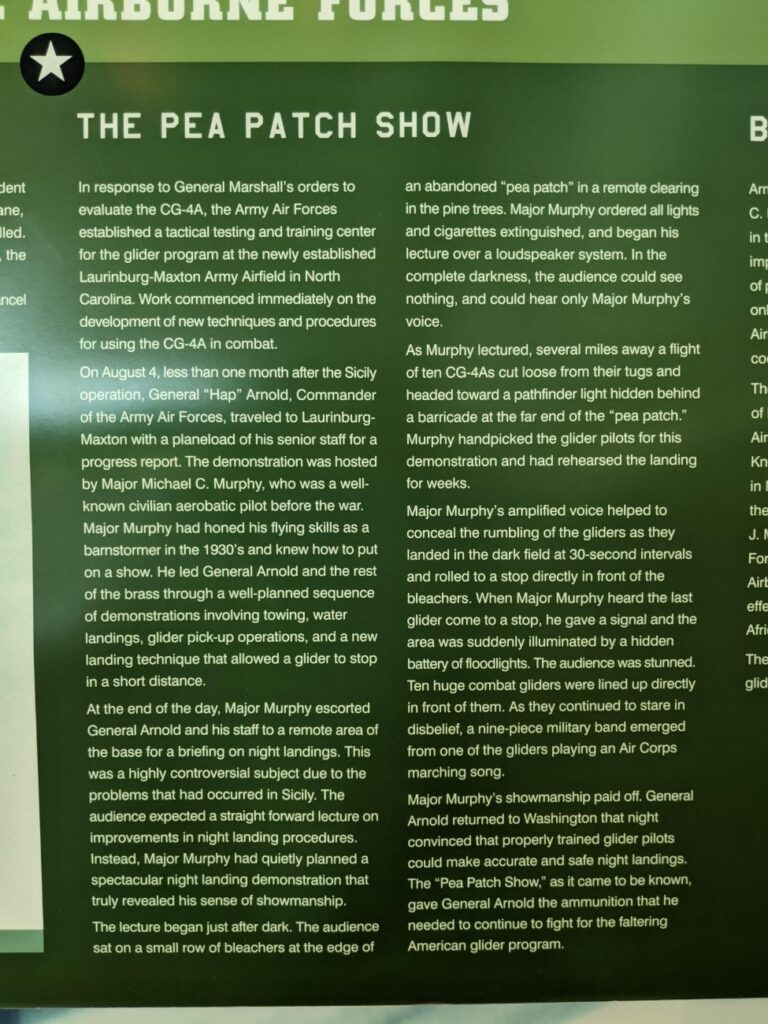
In the end, around 5,500 men volunteered to be trained as glider pilots. Of those, around 400 died in action or in the line of duty.
Conclusion
Like the WASP Museum, the Silent Wings Museum offers a look into a corner of WWII and military history that you don’t usually hear about. Extra brave people doing something new in order to further the cause of freedom.
Make sure to take time to read the stories and watch the videos, so that you get the full story. It’s not a big place and doesn’t take long to tour, maybe around an hour or so.
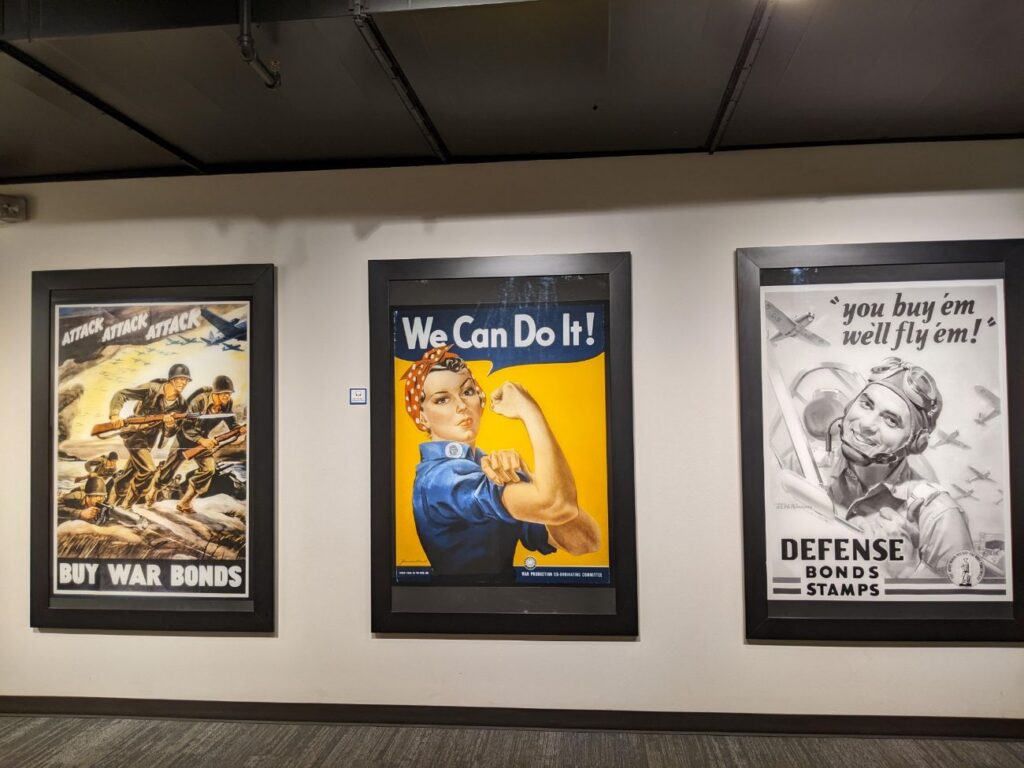
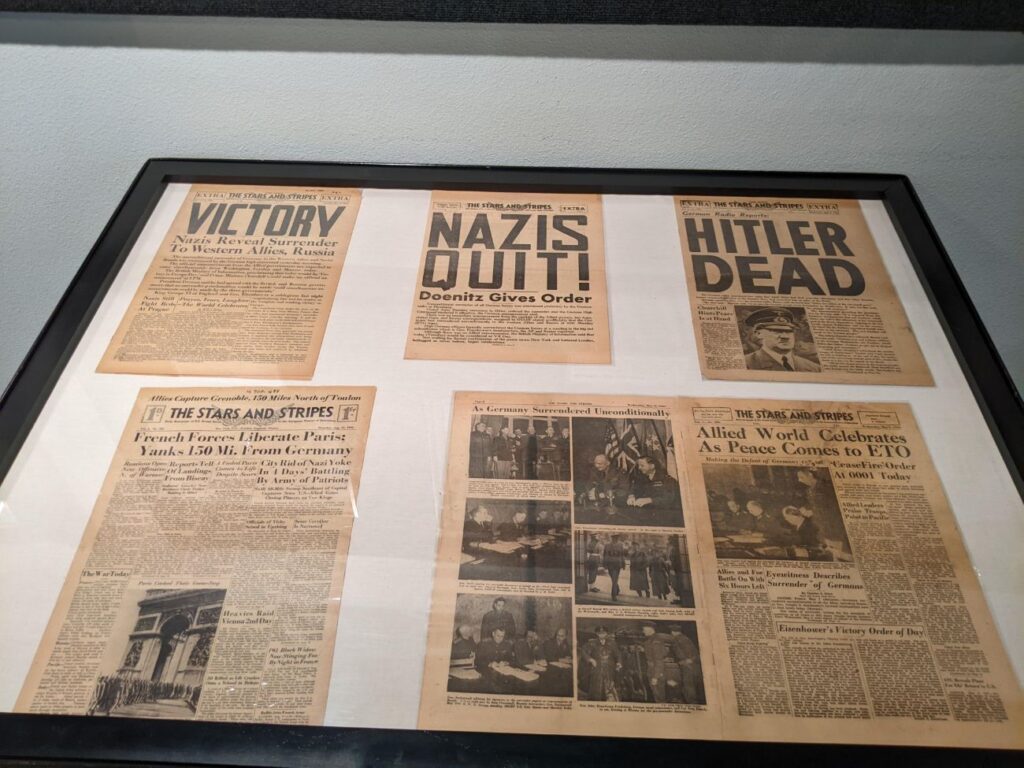
Hours & Admission
The Silent Wings Museum is open 10 am-5 pm Tuesdays through Saturdays and Sundays from 1-5 pm. They are closed on Mondays. A small gift shop sells toys, shirts, and more to commemorate your visit.
Admission costs $10 for adults, $6 for seniors 60+, $5 for kids 7-17, and any students with ID. Any kids 6 and under and all active military can visit for free. And when you purchase admission from the Silent Wings Museum, you receive half off the Buddy Holly Museum, also in Lubbock! I saw at least two groups that took advantage of this offer like I did.


Be First to Comment